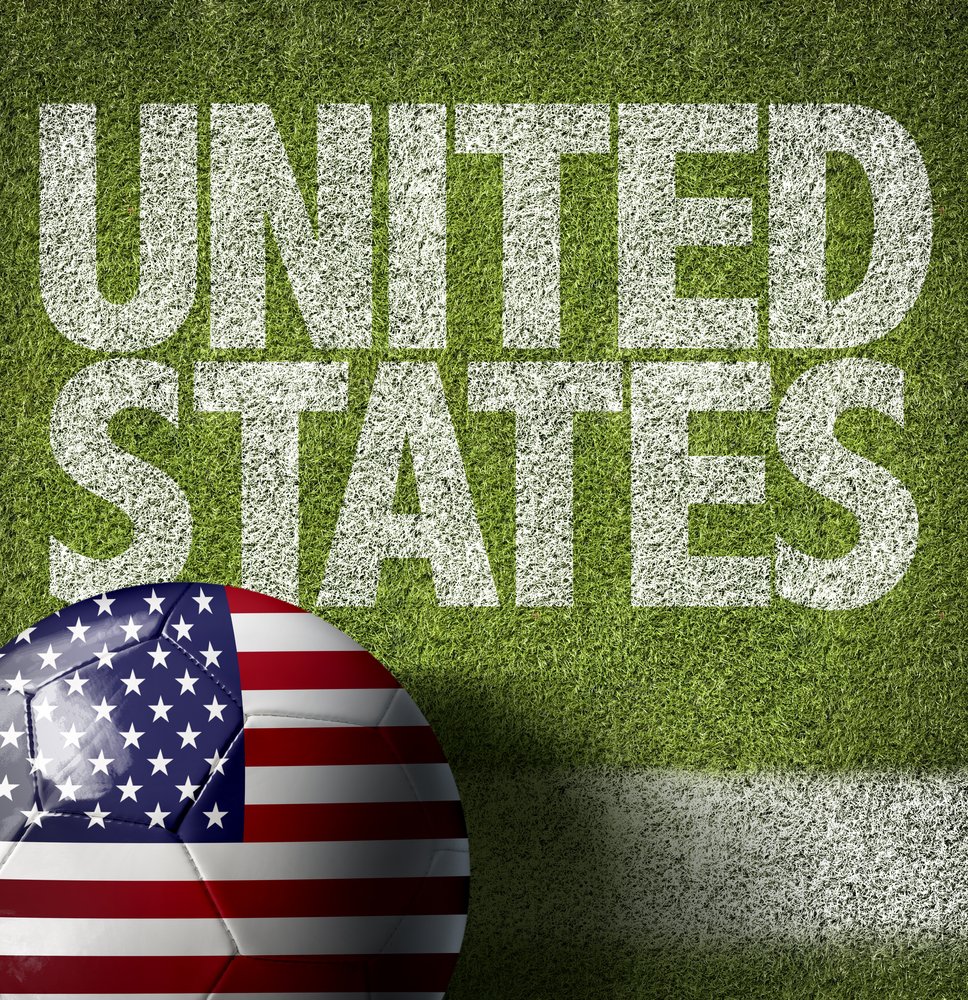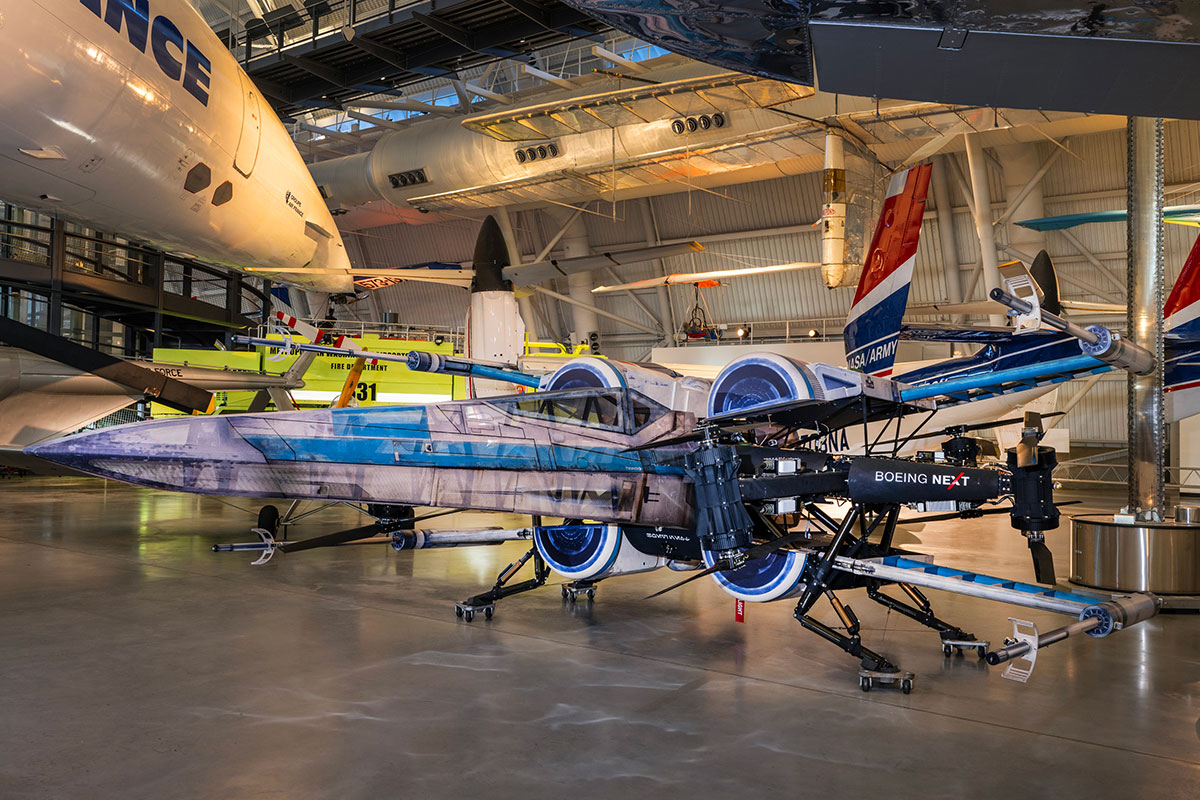Ali Krieger’s defense takes her from Prince William to soccer’s pinnacle

Ali Krieger could hardly believe what she was seeing.
Just 16 minutes into one of the most important games in American women’s soccer history, the U.S. national team had taken a commanding 4-0 lead against a fearsome Japanese squad at the finals of the 2015 FIFA Women’s World Cup in Vancouver.
“That’s never happened. That doesn’t even happen in the men’s game. It was just once in a lifetime,” says Krieger, a Northern Virginia native and starting right back for the U.S. team. “It’s unbelievable that [we’d score] four goals in the first 16 minutes of the game, let alone a World Cup final. Just to say that aloud, it’s unheard of.”
Midfielder Carli Lloyd notched three of the our goals, recording the only hat trick in women’s World Cup finals history mere minutes into the first half. In the end, the 4-0 lead proved to be more than enough as the team scored a 5-2 win over Japan on July 5 for its third World Cup title.
But for Krieger, 31, who had battled back from injury multiple times in her career, the win took on an even more personal meaning. On the very same field, Krieger suffered tears to the medial collateral (MCL) and anterior cruciate ligaments (ACL) in her right knee during the national team’s first game of the 2012 CONCACAF Olympic Women’s Qualifying tournament. The injury sidelined Krieger for several months, forcing her to miss the 2012 London Olympic Games, where the U.S. won gold over Japan, 2-1, in front of over 80,000 fans at Wembley Stadium. And heading into this World Cup, there were more injury concerns. Krieger had suffered a concussion in the 17th minute of the Washington Spirit season opener against Houston, missing two club games before leaving to join the national team.
So as the last few seconds wound down and the final whistle blew in Vancouver, Krieger fell to the ground in tears. She and her teammates had made it all the way back to the top.
“I was so emotional after the game because of that and my determination and drive and willingness to get back to the highest level I could play on and win and be a world champion,” says Krieger, known as a powerful attacking defender and gritty ball-winner. “I got injured on the same exact field that we played on to win. Everything came full circle for me, and I made a new memory there on that field, and I feel so good about it.”
And while many soccer experts had predicted a favorable result for the Americans, two-time Cup winners, the team’s early offensive explosion was truly a stunning result on the game’s biggest stage. After enduring early struggles in the Cup’s initial group stage, the team wrote its ticket to the July 5 finals with four straight shutouts against Nigeria, Colombia, China and Germany.
The team had also captured the hearts of the American public, as over 25 million viewers made it the most-watched soccer match in the history of the sport, men and women included. And in the stands for the finals, among thousands of cheering U.S. fans, was her family (including her brother Kyle; mother, Debbie; and father, Ken) and many of her closest friends.
“You’d just look in the stands during the tournament and [see] red, white and blue. There was support everywhere,” says Krieger. “And we’d hear about people watching it and supporting us back home. It’s inspiring to see your supporters and your fans just be there and be present in the moment. That’s why we called them the best fans in the world—because we honestly felt like every game was a home match.”
“It was very exhilarating. Very emotional. Emotional in capital letters,” says Ken Krieger, Ali’s father and longtime coach. “At the end of the game, you see your daughter go down on her knees, put her hands on her face because she’s crying; she’s just won a gold medal, just fulfilled a dream. It was a special moment.”
The World Cup competition has often been a flashpoint for Krieger. In 2011, she hit the decisive blast in a 5-3 penalty kick shootout win against Brazil in the quarterfinals. The U.S. team went on to beat France in the semifinals before dropping a heartbreaking loss to Japan on penalty kicks in the final.
This summer’s World Cup triumph earned Krieger and her teammates the trappings of 21st-century celebrity—a wave of hashtags, hosannas and hurrahs both nationally and locally during a monthlong media tour. U.S. Sens. Mark Warner and Tim Kaine sponsored a resolution recognizing the team’s accomplishments and contributions to U.S. soccer history. A ticker tape parade in New York City and a Sports Illustrated cover shoot feted the team, and musician Taylor Swift invited the team onstage at a concert in New Jersey. Nickelodeon brought several members of the team (including Krieger) to its Kids’ Choice Awards. The squad received the Team of the Year award at the ESPYs, ESPN’s annual awards gala.
Krieger, already extremely popular on Facebook, Instagram and Twitter, did interviews with nearly every local network television affiliate. Even the Microsoft store in Tysons Corner Center caught the spirit and hosted a party to unveil its Windows 10 operating system with Krieger as a featured guest.
“Coming home after the tournament, seeing how many people care and support us and want to see the women’s game, it’s just unbelievable. It’s just an incredible feeling,” says Krieger.
In mid-October, Prince William County officials broke ground on the Ali Krieger Sports Complex, an outdoor sports facility in the Potomac Shores subdivision of Dumfries. The location, which spans nearly 30 acres, will include several multipurpose fields and is expected to have its first phase completed in 2017.
The attention is nice, Krieger admits, but she hopes the media spotlight will help to grow women’s soccer in the United States and the National Women’s Soccer League, now is in its third season.
Following the World Cup triumph, the league did enjoy an immediate spike in attendance, as a record 21,000 fans showed up for a regular season match in Portland, Oregon—on a weekday. And the subsequent Victory Tour national team friendlies in Birmingham, Alabama; Chattanooga, Tennessee; Pittsburgh; and Detroit drew massive crowds and lopsided wins for the U.S.
“I think it’s important because we want to continue to grow [soccer], first and foremost, and continue to grow the league. Now we have a great platform, and all of our voices can be used to promote the league, not just in our country, but around the world,” adds Krieger, who has played overseas for clubs in both Germany and Sweden. “We want to continue to get [the league] on a higher level, have more teams, more sponsors and get more money into the sport. Because we deserve it, and we’ve proven that.”
Body by Ali
In January, ESPN The Magazine approached Krieger about modeling in its annual Body issue, a tribute to the varied fit and muscular forms of male and female professional athletes worldwide. In the revealing shoots, models are often posed nude or seminude in sports-specific poses designed to show off their athleticism, grace and physique.
“I absolutely was so excited. I was in awe that they would even ask me to be a part of that,” says Krieger, a defender known for her powerful legs. “I think it’s important to inspire young women to feel confident in their own skin and with their bodies, in any way shape or form.”
Fellow national teamers Hope Solo, Abby Wambach, Sydney LeRoux and Megan Rapinoe have posed for the issue in years past. This year’s issue also included Washington Nationals phenom Bryce Harper as one of the magazine’s six cover athletes.
“It was raw. It was honest. It was me. It kind of showed some vulnerability, and I think that’s important … because we’re all human, and no one’s perfect,” says Krieger, who practices yoga and likes to hike and surf in her spare time. “I think that it was a great reflection of myself and my sport, how proud I am of where I am, and who I’ve become, and my body.”
Coming Back Home
After the whirlwind World Cup run and its media-heavy afterglow, Krieger had little downtime before returning to her home club, the Washington Spirit.
“I’m really happy and proud to play for the Washington Spirit. It’s just home. It always has been and always will be,’ says Krieger, in her third season with the team, which made it to the NWSL semifinals this season. “I think it’s so great that we have a team in D.C. because I get to spend time with my family and friends with whom I’ve shared these relationships for so long. They can also come [to the games] finally and see me play live.”
Krieger is a coach’s dream, according to Spirit head coach Mark Parsons, who spent six years in various coaching roles with Chelsea FC in England.
“The best players that get to the top and stay at the top do what they need to do every day. There’s no off day in effort. There’s no off day in being focused or having a great attitude. Those are the things that you can control yourself every day,” Parsons says. “Ali is a prime example of that in training, never dropping in one of those three areas. That, to me, is the foundation for one of the best athletes in the world, and Ali is one of those.”
Prince William Roots
Like many area soccer players, Krieger initially learned her craft on the fields of Prince William County and Northern Virginia. Both of her parents were physical education teachers and met as college athletes at Frostburg State University in western Maryland, before moving to Dumfries to begin raising a family. When Ali turned 7, her father took a position at the helm of a new Prince William Soccer Incorporated girls’ travel team, the Under-9 Sparklers.
It ended up being a legendary alliance in Virginia youth soccer history, as the PWSI Sparklers ultimately won a record six out of a possible seven Virginia Youth Soccer Association State Cup titles from 1997 to 2003 and finished as the national championship runner-up as a U16 team in a triple overtime thriller in 2000. Eight of Ali’s teammates played with the Sparklers for all 12 seasons, and she counts many as her good friends to this day.
“I think it’s the friendships that you make within soccer,” says Krieger. “It’s not only your goals and your successes and your dreams that do come true, but it’s the friendships you make playing on a team, and I think that’s what lasts forever.”
The soccer genes run deep in the Krieger family. Her father won two national championships as the boys’ soccer coach for C.D. Hylton High School in Dale City and is currently the state’s all-time winningest AAA boys coach with 386 victories over 30 seasons at Osbourn Park, Hylton and Forest Park. He also had a head coaching stint with Harford College and was a college assistant with American and George Mason Universities. A longtime coaching participant in the region’s Olympic Development Program, he’s also held leadership positions with both Prince William and McLean youth soccer organizations.
“I’ve always felt, and I never told her, that she had something different from other people,” says Ken Krieger, recently hired as the head coach for the DC United U16 team, part of the professional team’s youth academy. “She made the game look easy when she played, even at a young age. I just thought, as long as she can stay healthy, she’ll find her way into the national program, and she’ll find her way into a World Cup.”
While winning state championships with the Sparklers, Krieger was also putting together a stellar high school resume. She was captain of the Forest Park Varsity soccer team for three years and helped guide the team to its first undefeated regular season. During her senior year, she was voted Virginia’s Gatorade Player of The Year and the Washington Post All-Met Player of the Year.
“I guess that’s when I knew that I was really good at something and I should continue to play and see how far I can go,” says Krieger, who returned to Forest Park for a pre-World Cup clinic. “I was so happy on the field, so I knew that was where I should be and what I should continue to do.”
Wanting to be near home, Krieger accepted an athletic scholarship to Penn State University, where she played from 2003 to 2006. She enjoyed a decorated career at Penn State, where she was a two-time National Soccer Coaches Association of America All-American captain and a finalist for the Hermann Trophy, which recognizes the women’s soccer player of the year.
It was also at Penn State where Krieger nearly saw her goal of becoming a professional player come to a tragic end. During her junior year she suffered a broken leg playing against a men’s club team, and the injury required surgery to repair. Several months later she developed blood clots in her lungs, which caused a pulmonary embolism and several small heart attacks. If left untreated, the results could have been fatal for the then-21-year-old junior. Krieger eventually recovered and led Penn State to its fourth-straight Big Ten title as a senior and was named the NCAA co-Defensive Player of the Year.
“I wasn’t sure back in 2007, at the age of 21, if I would ever come back and play at the highest level, and that was a scary feeling. It was a lot of perspective for me, but I just kept going one day at a time and focused on making small goals for myself. That eventually turned into bigger goals and looking to the future,” she says.
After college, Krieger’s soccer journey took her to Germany, where she played professionally in the Bundesliga for four seasons (2007-2011), immersing herself in the sport, the German language and a new culture.
“I had the best experience of my life there,” says Krieger, whose last name is German for warrior. “There was no [domestic] league when I graduated from college. I wanted to play at the national team level, and I needed that [opportunity] to get better and challenge myself. It helped me get to the next level. It helped me get to the national team. If I never would have gone, I might be not be sitting here [doing an interview] today.”
Krieger debuted with the U.S. national team in January 2008 and has been a regular starter since 2010. If things continue as planned, she’ll play in her first Olympic games next summer in Rio de Janeiro.
And beyond that? The 31-year-old warrior doesn’t see herself stopping anytime soon.
“I try not to think about that because I try to live in the present. I don’t know when I will stop. Our captain [defender Christie Rampone] of the national team is 40 years old and kicking ass at the World Cup level,” says Krieger, who visited the White House with her World Cup teammates in late October. “I don’t know if I’ll take the same path, but obviously I don’t want to hang up my boots anytime soon. I’m having fun; I’m enjoying it; I’m playing well. I feel good. Even at 31, I still feel young. And as long as I am having fun, I’m still going to play.”
( December 2015 )





